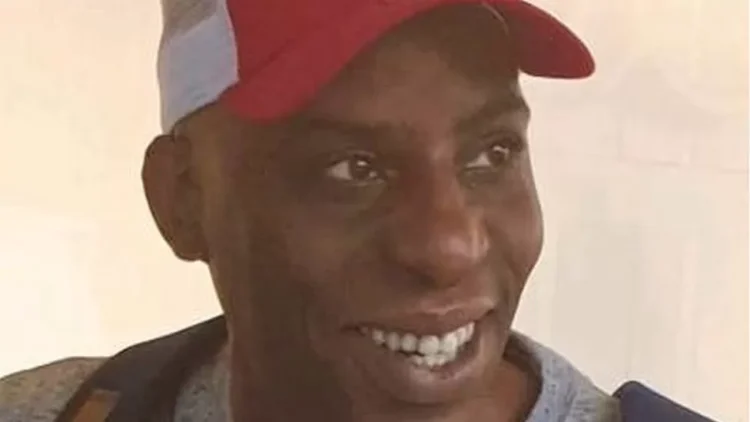By Chris Williamson-
The family of a man who died after being Tasered on a London bridge is taking legal action against the police watchdog for failing to criminally investigate the two officers involved.
Oladeji Omishore was pulled from the River Thames after a confrontation with two Metropolitan Police officers on 4 June, and later died in hospital.
The family says the Independent Office for Police Conduct (IOPC) was “biased” for treating the officers as witnesses.
It said it had “received correspondence” from the family’s legal representatives, which was “being carefully considered”.
Police Call
The police were called to Albert Bridge in Chelsea after reports that Mr Omishore was seen shouting and holding a screwdriver, which later turned out to be a plastic and metal firelighter.
The 41-year-old faced struggles with his mental health, the family said. It is believed he was going through a mental health crisis at the time of the incident.
However, there has been no explanation as to why Mr. Omisore w
Now the family is bringing legal action against the IOPC and challenging its decision not to hold a criminal investigation into his death, which they say was unlawful and irrational.
The legal action comes after a separate damning report published earlier, detailing serious misconduct within the Metropolitan Police.
Fit For Purpose
The family says the IOPC is “not fit for purpose” and has been “completely biased” in its treatment of the officers during the investigation.
Mr Omishore’s father, Alfred Omishore, said video from the night appeared to show his son running towards the river before being Tasered “multiple times”, and showed his son was “in pain”.
“At no time did they seek to de-escalate. No attempt was made to restrain him,” he said.
Alfred Omishore claimed it appeared the officers “didn’t care what the young man was going through”.
Oladeji’s sister, Remi, said it was “completely outrageous” the officers involved in the incident were being treated as witnesses and “not as subjects of a conduct investigation”.
She said the family had concerns about the IOPC’s “inability, or perhaps reluctance, to apply the proper threshold in our brother’s case”.
“The officers are still on active duty, going about their daily lives with impunity. It’s unacceptable in this day and age,” she added.
The family also pointed to delays in replacing incorrect information, including the suggestion Mr Omishore had been brandishing a screwdriver, which they allege took the force 13 days to correct.
His father says he hopes that as a result of the family’s action, they will ensure the IOPC “does the right thing”.
An IOPC spokesperson said: “Our thoughts and sympathies remain with the family and friends of Oladeji Omishore.
“We have received correspondence from the family’s legal representatives today which is being carefully considered.
“During any investigation, we keep conduct matters under constant review and take decisions based on the evidence available.Police were called to reports of a man who was armed with a screwdriver and shouting on Chelsea Bridge Road
“At this stage, we have no indication that any of the officers involved may have breached police professional standards or committed a criminal offence. This will be kept under review during the investigation.
“We are committed to keeping Mr Omishore’s family updated.”The watchdog found no evidence that the Greater Manchester police officers acted out of line with force or national policies.
A video of the incident, which was widely circulated on social media, showed Mombeyarara being shot with the electric weapon and slumping on the ground as his child cried and shouted: “Daddy.”
The Independent Office for Police Conduct (IOPC) found no evidence that the officers acted out of line with force or national policies.
But lawyers acting for Mombeyarara said they and their client disagreed with the IOPC findings.
A statement from Scott-Moncrieff & Associates, solicitors for Mombeyarara, said: “We are of the firm opinion that the extremely disturbing uses of a Taser on Mr Mombeyarara, as seen in the video that went viral, were unnecessary, inappropriate and therefore a disproportionate use of force.
“We share Mr Mombeyarara’s disappointment concerning the general conclusions reached by the IOPC. We disagree with the IOPC that in this particular case it was appropriate to use a Taser as opposed to conventional physical restraint techniques.
“It is ultimately for the court to determine whether the police use of force was proportionate in this case. Therefore, Mr Mombeyarara intends to bring a damages claim against the chief constable of Greater Manchester police in relations to the excessive use of force.”
The IOPC said officers suspected the driver was intoxicated and that he did not comply when they tried to breathalyse him. When police tried to arrest him, the statement said, the incident “escalated” and “resulted in a Taser being discharged seven times”.
The police complaints watchdog concluded the evidence “did not suggest that an officer may have acted in a way that justified disciplinary proceedings or committed a criminal offence, however, our investigation highlighted several areas of learning for [the] force and the officers involved in the incident”.
It also found “no evidence to suggest the complainant’s ethnicity was a factor in the decision to use force against him”.




